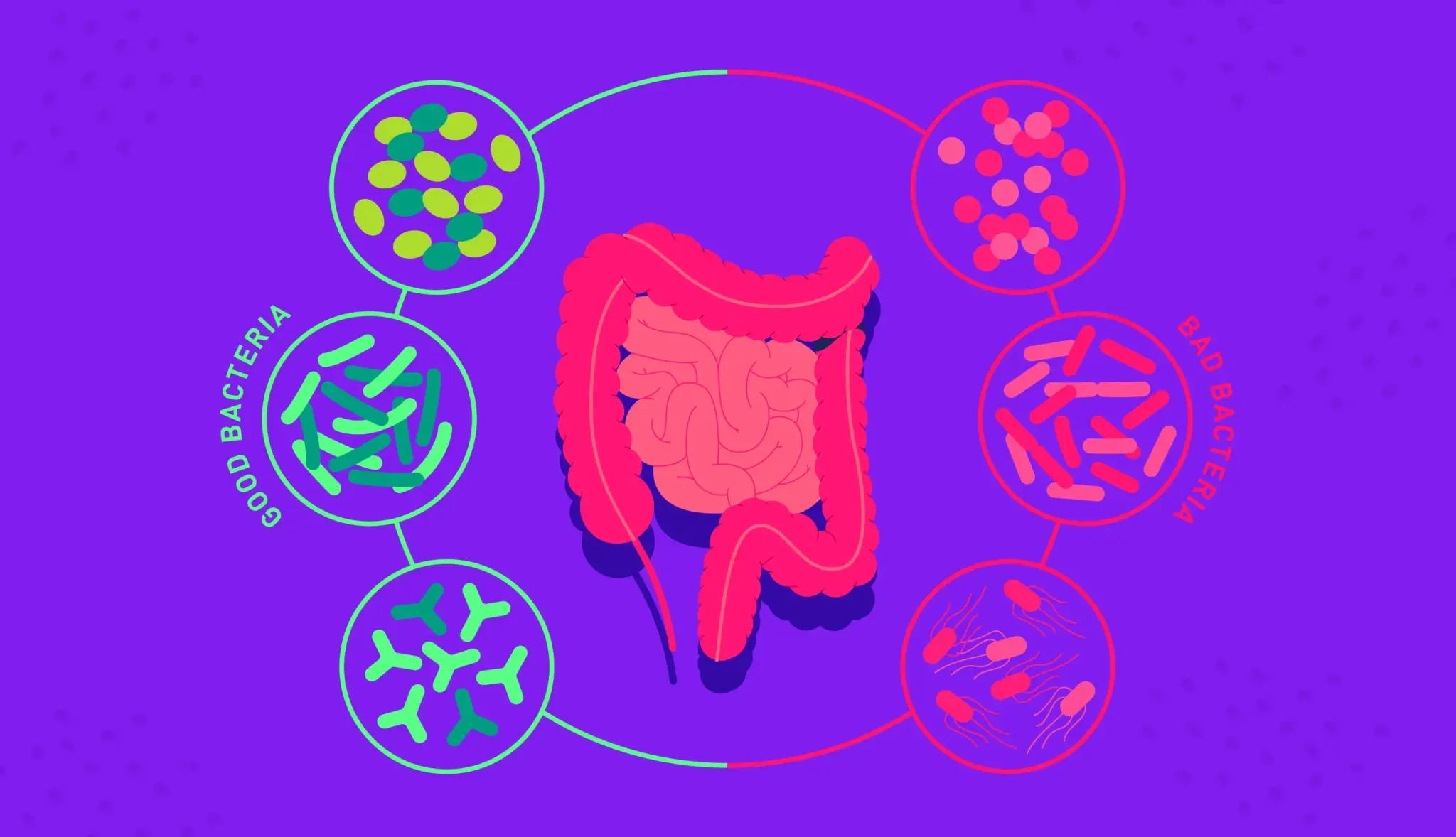About Dysbiosis:
- Dysbiosis is an imbalance within a community of microorganisms living together — a microbiome.
- Our bodies are host to several distinct microbiomes — communities of microorganisms that live with us and assist us in various ways.
- A balanced microbiome is one where there’s a healthy diversity of microorganisms, where no single bacteria, virus or fungus dominates.
- Dysbiosis means there’s alack of diversity and balance. When they’re imbalanced, it changes how they function in your body.
- Dysbiosis typically occurs when the bacteria in your gastrointestinal (GI) tract — which includes your stomach and intestines — become unbalanced.
- Cause: It can arise from infections, antibiotic use, or some aspects of a person’s diet.
- How does dysbiosis affect us?
- In any microbiome, a lack of diversity and balance can pave the way for one type of microorganism to take over.
- Dysbiosis makes us more vulnerable to infections from germs living inside and outside of our bodies.
- It can also interfere with other important services that our microbiomes normally provide for us.
- Symptoms: Though it is sometimes asymptomatic, dysbiosis may manifest in abdominal pain, bloating, and vomiting.
- Dysbiosis is also common on your skin. It can be caused by exposure to harmful bacteria or an overgrowth of a single type of bacteria.
- Treatment:
- The main premise of treatment is to increase gut microbiome biodiversity. Scientists have developed several ways of treating dysbiosis, including:
- Fecal microbiota transplantation
- Probiotic therapy
- Microbial metabolic pathway therapy
- If an underlying disease or condition causes it, you’ll need specific treatment for that condition.
Q1: What are antibiotics?
Antibiotics are medicines that fight bacterial infections in people and animals. They work by killing the bacteria or by making it hard for the bacteria to grow and multiply.
Source: Hidden dangers of irrational use of antibiotics on microbiome
Last updated on June, 2025
→ UPSC Notification 2025 was released on 22nd January 2025.
→ UPSC Prelims Result 2025 is out now for the CSE held on 25 May 2025.
→ UPSC Prelims Question Paper 2025 and Unofficial Prelims Answer Key 2025 are available now.
→ UPSC Calendar 2026 is released on 15th May, 2025.
→ The UPSC Vacancy 2025 were released 1129, out of which 979 were for UPSC CSE and remaining 150 are for UPSC IFoS.
→ UPSC Mains 2025 will be conducted on 22nd August 2025.
→ UPSC Prelims 2026 will be conducted on 24th May, 2026 & UPSC Mains 2026 will be conducted on 21st August 2026.
→ The UPSC Selection Process is of 3 stages-Prelims, Mains and Interview.
→ UPSC Result 2024 is released with latest UPSC Marksheet 2024. Check Now!
→ UPSC Toppers List 2024 is released now. Shakti Dubey is UPSC AIR 1 2024 Topper.
→ Also check Best IAS Coaching in Delhi
























